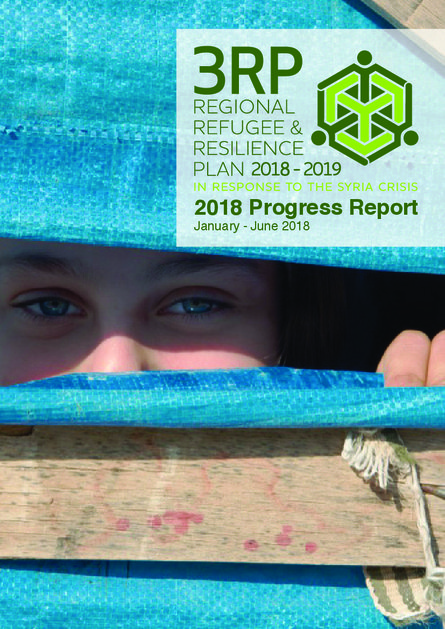
As the conflict in Syria entered its eighth year, neighbouring countries continue to show great generosity in shouldering the weight of the crisis in terms of hosting refugees. As of June 2018, over 5.6 million Syrian refugees were registered in Turkey, Lebanon, Jordan, Iraq, and Egypt. Nevertheless, host countries continue to contend with mounting demographic, economic, political, security and social pressures. Across the region, borders and admission practices remained closely managed, affecting the displacement ability of many individuals.
Despite the exceptional generosity of host governments, the conditions of refugee families across the region remain extremely challenging and many refugee families have become increasingly vulnerable with each passing year of displacement: poverty rates exceed 60 per cent in some host countries and some 35 per cent of Syrian refugee children are out-of-school. The impact of this crisis on vulnerable girls, boys, women and men’s protection and well-being remains staggering. This may have lasting consequences, including the impacts of early marriage, sexual and gender-based violence, child labour, indebtedness, and exploitation. As more refugees slip into poverty, such protection risks will only get worse. Meanwhile, Palestinian refugees affected by the Syrian crisis continue to face particular vulnerabilities.
The political, economic and social trends which have compounded the conditions of refugees in countries neighbouring Syria have also had a similar impact on vulnerable members of their host communities. 3RP partners across the region continue to deliver programmes that benefit populations affected by the crisis, while also aiming to reinforce national systems and the provision of public services that refugees and host communities alike rely on to meet their basic and urgent needs.
While gaps remain, the 3RP response, implemented through its 270 partners, has contributed to: the enrolment of over 1.2 million children aged 5 to 17 in formal education; the award of 8,000 university scholarships to Syrian youth aged 18 years and above, vocational training and preparatory language courses; the provision of food assistance to over 2.3 million people; the engagement of over half a million individuals in community-led initiatives; and, the disbursement of emergency cash assistance to 450,000 households, giving them the choice and dignity to spend the money according to their most pressing needs. Meanwhile, Members of the Protection from Sexual Exploitation and Abuse (PSEA)’s country networks have been reinforcing awareness and trainings on addressing SEA.